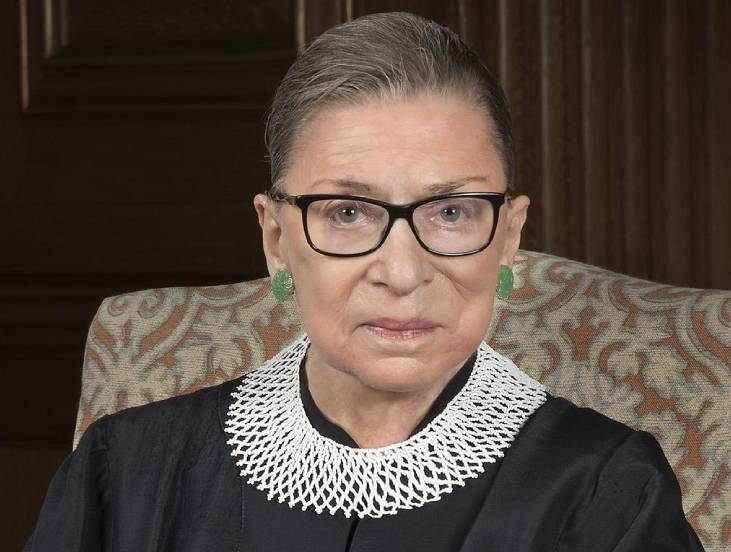Ruth Bader Ginsburg: US Supreme Court Justice, feminist icon dies at 87
USA: Justice Ruth Bader Ginsburg, the demure revolutionists who in her 80s turned into a legal, social and women’s activist symbol, passed on Friday. The Supreme Court declared her demise, saying the reason was complications from metastatic malignant growth of the pancreas.
Ginsburg had been going through chemotherapy for cancer in her liver since July, the remainder of her few fights with disease. The court, in an announcement, said Ginsburg passed away at her home in Washington, D.C., encompassed by family.
Draftsman of the legal battle for ladies’ privileges during the 1970s, Ginsburg in this manner served 27 years on the country’s most noteworthy court, turning into its most unmistakable part. Young women particularly appeared to grasp the court’s Jewish grandma, warmly considering her the Notorious RBG, for her guard of the privileges of ladies and minorities, and the quality and strength she showed despite individual misfortune and well-being crises.
Her passing will definitely get under way what vows to be a frightful and turbulent political fight over who will succeed her, and it pushes the Supreme Court opening into the spotlight of the presidential mission. She opposed calls by dissidents to resign during Barack Obama’s administration when Democrats held the Senate and a supplanting with comparable perspectives could have been affirmed. Rather, Trump will in all likelihood attempt to push Ginsburg’s replacement through the Republican-controlled Senate — and move the traditionalist court much more to right side.
Ginsburg’s demise only a month and a half before the US presidential race is probably going to start a discussion about whether Trump ought to select, and the Republican-drove Senate ought to affirm, her substitution, or the seat ought to stay empty until the political race results are in.
The Trump organization has lost a progression of cases over the most recent four years by an edge of 5 to 4, with Roberts tossing his weight behind the liberal justices. This is genuine despite the fact that Trump has himself selected two adjudicators to the top court. “My most intense wish is that I won’t be supplanted until another president is introduced,” Ginsburg had said not long ago, as per an announcement gave by her granddaughter Clara Spera.
Ginsburg had caused a discussion by assaulting presidential up-and-comer Donald Trump during the 2016 political race, prompting the perception that judges ought not to engage in sectarian governmental issues. She had later apologized.
Also Read: Mumbai Police: Disha Salian Didn’t Dial 100, Last Called Her Friend
Ginsburg was appointed to the Supreme Court by previous President Bill Clinton in 1993. “Ruth Bader Ginsburg needn’t bother with a seat on the Supreme Court to win her place in the American history books,” Clinton had said at the hour of her arrangement. “She has just done that.”
On Friday, Clinton grieved her passing, saying, “Her 27 years on the court surpassed even my best standards when I selected her. Her milestone assessments propelling sex equity, marriage equity, the privileges of individuals with handicaps, the privileges of settlers, thus a lot more drew us nearer to ‘a more impeccable association.'”
US, Chief Justice John Roberts has said that “Our country has now lost a justice of prominent height, we at the Supreme Court have now lost a precious partner. Today we mourn yet with faith that people in the future will remember Ruth Bader Ginsburg as we was already aware her, an eager and fearless victor of justice.”
Ginsburg once said that she had not entered the law as an equivalent rights champion. She then said that “I believed I could show perfection over some other, I have no aptitude in expressions of the human experience, however, I do constitute genuinely well and investigate issues clearly.”


How do EMV chips enhance security at PoS terminals? Unravelling encryption protocols
Daily Use Gold Bangles Care: Tips for Maintaining Their Shine
Why MSMEs Should Opt for Used Commercial Vehicle Loans?
Climate Action and Environmental Impact: How One Affects the Other?